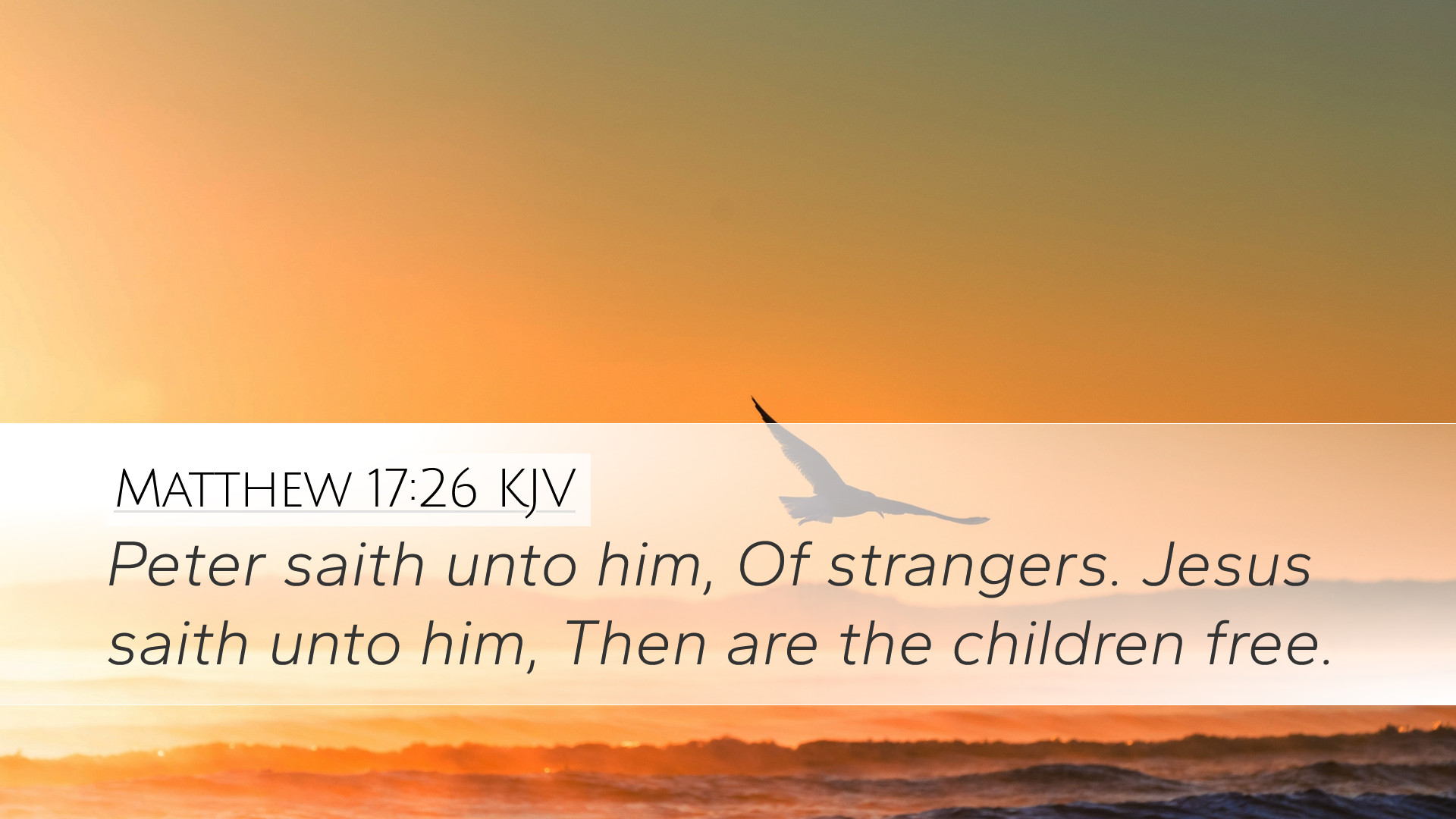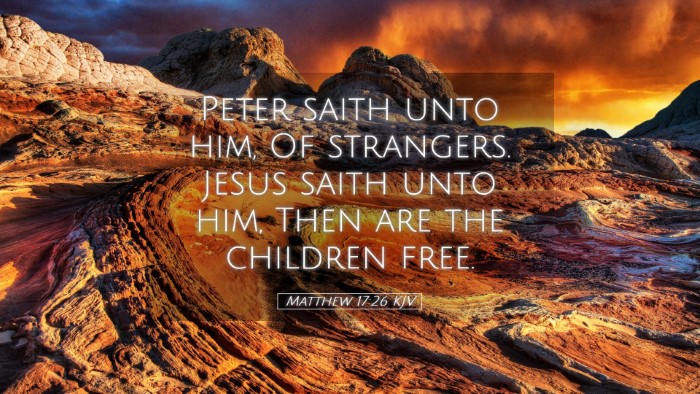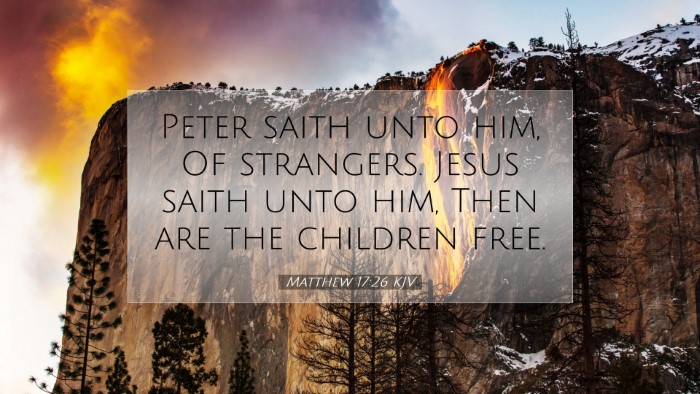Commentary on Matthew 17:26
Bible Verse: "Jesus said to him, 'From strangers.' Jesus said to him, 'Then the sons are free.'
Contextual Background
The scene in Matthew 17:26 takes place in Capernaum, shortly after the transfiguration of Jesus. This passage highlights a significant theological truth regarding Jesus' divine sonship and the implications it has on His relation to religious obligations.
Thematic Analysis
This verse can be examined through multiple lenses, including its implications for understanding Christ’s identity as the Son of God, the nature of freedom from obligations, and the contrast between worldly and heavenly kingdoms.
1. Jesus as the Son of God
Albert Barnes emphasizes that Jesus, as the Son, holds a unique position in relation to God the Father. In this context, it is important to recognize that the sons are free from the obligation of paying the temple tax. This freedom is rooted in their identity and privilege.
2. Freedom from Obligation
Matthew Henry articulates that Jesus' statement "Then the sons are free" indicates a profound truth about Christian liberty. Believers, as children of God, are freed from the bondage of the law and obligations that do not pertain to their inheritance. This theme resonates deeply within the broader narrative of the New Testament, where grace supersedes law.
3. Contrasting Kingdoms
Adam Clarke provides a critical perspective on the contrast between the heavenly kingdom and earthly expectations. The tax collectors symbolize worldly systems that impose burdens on individuals, whereas Christ represents the liberating truth of the Gospel. In essence, the verse serves to illustrate the difference between secular authority and divine grace.
Implications for Believers
The theological implications of this passage are profound for contemporary believers. They can glean valuable insights regarding their identity in Christ, their position concerning the law, and their engagement with the world.
1. Identity in Christ
Understanding oneself as a "son" or "daughter" of God alters one’s perspective on obligation and duty. As emphasized by Barnes, this identity provides a foundation for spiritual freedom that is not contingent upon external laws or expectations.
2. Law and Grace
The interplay between law and grace is essential in the life of a believer. Henry notes that while obligations may exist, they do not define one’s standing before God. Instead, grace, which liberates from the law’s demands, should govern a believer’s actions.
3. Engagement with Secular Authority
Clarke’s exploration of the contrast between the heavenly and earthly realm encourages believers to navigate their responsibilities with wisdom and discernment. While they may participate in secular obligations, their primary allegiance lies with God’s kingdom.
Conclusion
Matthew 17:26 serves as a vital reminder of the believer’s identity and freedom in Christ. By synthesizing the insights of renowned commentators, we can appreciate the theological depth of this brief yet impactful verse. Understanding the implications of Jesus’ words equips pastors, students, theologians, and scholars with tools to deepen their faith and engage the world meaningfully.


